Download the agenda for the gathering here (PDF file).
The Southern Chiefs’ Organization (SCO) is pleased to announce the “Achieving Reconciliation: First Nations Health Gathering” set to take place at the RBC Convention Centre on Treaty One Territory in Winnipeg, Manitoba on March 19 and 20, 2024. The gathering will feature speakers from Canada, the United States, and as far away as Australia.
“The Southern Chiefs’ Organization is transforming the healthcare system by decolonizing the healthcare field and bringing it back into the hands of Dakota and Anishinaabe people, where it belongs. We want to build on our collective learnings by creating space to share best-practices and lessons learned. Our goal is to bring together citizens who are actively working within the healthcare field where speakers from different parts of the world can share emerging trends. This knowledge will help us build a stronger and more holistic system that is ultimately responsive to the distinct needs of the 34 SCO member Nations,” said Grand Chief Jerry Daniels.
The gathering is geared towards SCO member First Nations Chief and Councils, Elders and Knowledge Keepers, health directors, and other health care professionals. We also encourage leaders in various sectors, organizations, governments, partners, and individuals committed to First Nations’ right to health to attend. The event is free for citizens of SCO member Nations who are involved in the health sector. There is a cost for non-SCO members to attend the gathering. Spaces are limited.

Guests and speakers include:
- The Honourable Uzoma Asagwara, Deputy Premier and Minister of Health, Seniors and Long-term Care for Manitoba
- Dr. Phil Fontaine, former National Chief of the Assembly of First Nations and a member of Sagkeeng Anicinabe Nation
- SCO Community Ambassador and member of Pine Creek First Nation, Kevin Chief
International speakers include:
- Stacy A. Bohlen, a citizen of the Sault Ste. Marie Tribe of Chippewa Indians and Chief Executive Officer (CEO) of the National Indian Health Board
- Sue-Anne Hunter, a proud Wurundjeri and Ngu rai Illum Wurrung woman, Deputy Chair and Commissioner of Australia’s first truth telling process – the Yoorrook Justice Commission, and a member of the National Centre for Reconciliation, Truth, and Justice Advisory Board
A broad range of globally acclaimed panelists will cover topics such as:
- colonialism and First Nations health;
- legal liability for colonial consequences;
- decolonizing institutionalized determinants of health;
- cultural reclamation and health;
- structural and transformative change;
- working towards reconciliation on First Nations health;
- transforming First Nations health through a rights-based approach;
- transforming health care through policy and partnerships;
- youth and reconciliation;
- dealing with health crises through decolonization;
- intergenerational trauma and addictions; and
- exploring the concept of “Indigegogy” and gender wellness from First Nations perspectives.
There will also be an evening reception on March 19, 2024, where participants will have an opportunity to network, meet and greet the various speakers, and enjoy a cultural performance by local artists.
“Through collaborative efforts with our provincial and federal Treaty partners, SCO aims to achieve health reconciliation and ensure health services for our citizens are culturally responsive and reflective of regional differences,” shared Chief Gordon Bluesky, Chair of the SCO Chiefs’ Health Action Table. “Our health transformation work seeks to reduce the 11-year and growing gap in life expectancy between First Nation citizens and all others living in Manitoba. I encourage First Nations leadership and all healthcare professionals to attend this gathering to learn more about the role reconciliation can play in a transformed health system.”
Registration:
For more information on “SCO’s Achieving Reconciliation: First Nations Health Gathering,” and to register please complete this fillable form (PDF).
For more information, please contact Morgan Paul:
Toll Free: 1-866-876-9701
Phone: 204-946-1869
Cell: 431-323-0505
Meet Our Presenters
Please note our presenter bios are in order of agenda.
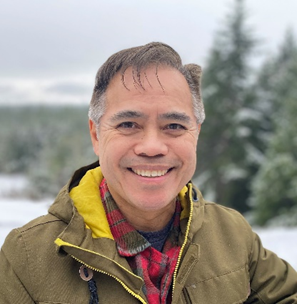
Dr. Evan Tlesla Adams is a Coast Salish physician from Tla’amin First Nation near Powell River, BC.
Dr. Adams completed his Medical Doctorate at the University of Calgary and a residency in the Aboriginal Family Practice Program at the University of British Columbia in Vancouver. Dr. Adams has a Master of Public Health from Johns Hopkins University in Baltimore, Maryland. He was the Deputy Provincial Health Officer for BC (2012 to 2014), the Chief Medical Officer of the First Nations Health Authority (2014-2020), and the Deputy Chief Medical Officer of First Nations & Inuit Health Branch, Indigenous Services Canada (2020-2023). He has recently returned half-time to the FNHA as their Deputy CMO and half-time to Simon Fraser University’s new Medical School as an Acting Associate Dean.
Samir Shaheen-Hussain is an associate professor in the Department of Pediatrics and an associate member of the School of Population and Global Health, both in the Faculty of Medicine and Health Sciences at McGill University. He works as a pediatric emergency physician. He is a member of the Caring for Social Justice Collective, and is the author of the award-winning book “Fighting for A Hand to Hold: Confronting Medical Colonialism against Indigenous Children in Canada” (foreword by Cindy Blackstock; afterword by Katsi’tsakwas Ellen Gabriel).
Samir is a racialized second-generation settler, born to parents who immigrated from South Asia, a region itself impacted by British colonialism. Tio’tia:ke (Montreal), the place where he lives, works and calls “home” is located on the unceded lands and waters of the Kanien’kehá:ka Nation
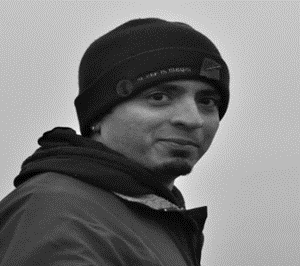
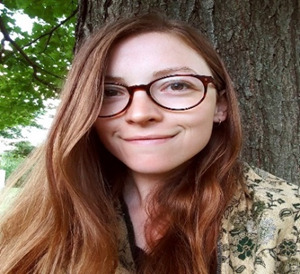
Kathryn Boschmann is a settler historian and Research Director of the Manitoba Indigenous Tuberculosis History Project. Her graduate studies focused on oral history methodologies, migration studies, and Indigenous history in the Prairies. She has managed several historical research projects over her career, including community-led investigations into missing children and unmarked burials associated with residential schools and an oral history project with newcomers to Manitoba at the Manitoba Museum, which has been integrated into a permanent exhibit.
Naomi Adelson (she/her) holds a PhD and is a professor of medical anthropology and, the associate vice president, research and innovation at Toronto Metropolitan University. As a medical anthropologist, her primary research focus has been on a critical examination of health, focusing on the political, cultural, and social landscapes of Indigenous health in Canada. She has a three decade-long collaborative research relationship with the Whapmagoostui Iiyiyu’ch of Iiyiyu Istchee (Nunavik, QC). In consultation and collaboration with the community’s leadership and with the James Bay Cree Board of Health and Social Services, they are in the process of transferring ownership, control, and management of the original research interviews and translations to the community.

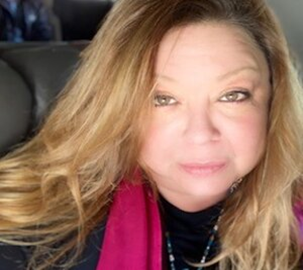
Stacy A. Bohlen (Sault Ste. Marie Tribe of Chippewa Indians) is the Chief Executive Officer of the National Indian Health Board (NIHB). With the support of a strong, tribally-elected Board of Directors, Ms. Bohlen’s service to NIHB has contributed to the organization’s successful work to establish and elevate the Tribal presence for improving health care in the Nation’s capitol, promoted and strengthened the organization’s service to all federally recognized Tribes, significantly increased NIHB’s budget, staff, and connectivity to the Tribes, and increased NIHB’s effectiveness. Prior to joining NIHB, she was the Director of Federal Relations for the American Indian Higher Education Consortium, Deputy Director of the American Osteopathic Association’s Washington, DC Office, and served on the staff of former U.S. Congressman Bob Traxler. Ms. Bohlen received her Bachelor’s degree in Political Science from Oakland University in Rochester Hills, MI. She was born and raised in Michigan.
Raymond Flett has been Chief of St. Theresa Point Anisininew Nation since October 27, 2023. Chief Raymond Flett is happily married and grew up in his community of St. Therea Point First Nation.
Chief Flett spent sixteen years as a High School teacher and then principal in St. Theresa Point First Nation. He is also a Former Band Councillor, and during that time led the way on successful applications with NRCAN, for GCIB for school solar projects and acted as a member of the St. Theresa Point Housing Committee. Chief Raymond Flett continues to motivate his staff and community in positive ways.
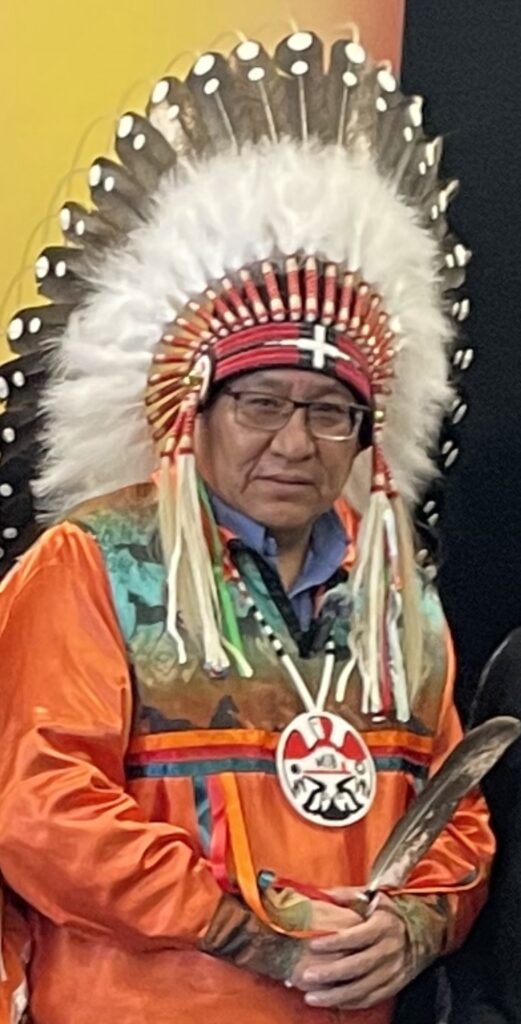
Margaret Swan was born in Winnipeg and spent her childhood and youth living on the Lake Manitoba First Nation. As a young woman she was in the military and later spent time working in various roles with First Nations and First Nation organizations. She began her career in Portage la Prairie working as a social worker with Dakota Ojibway Child and Family Services and Sandy Bay CFS. She then went on to become Chief of Lake Manitoba First Nation, prior to being elected as Grand Chief of SCO. She has also worked coordinating long-term planning for foster care at the Ma Mawi Wi Chi Itata Centre Inc. in Winnipeg. She is fluent in Ojibway and considers herself a spiritual person who takes part in both Traditional ceremonies and Christian church. Swan was pivotal in moving the Indian Day School Class Action Lawsuit Settlements through to reality, advocating to see that historic day happen in August 2019. She is currently Director of CFS for SCO, and sits as Chair of the Board of the Southern First Nations Network of Care.

Jonathan Ptak is a partner in the class actions group at Koskie Minsky LLP. He is recognized by the lawyer rankings publications of Lexpert, Chambers Canada and Best Lawyers as a leading practitioner in class proceedings. He was also selected as a fellow of the Litigation Counsel of America and was appointed to sit on the Ontario Class Action Bench-Bar Liaison Committee.
He is counsel in class actions in a wide variety of areas, including institutional abuse cases against the government (both as against Canada and Ontario), product liability, securities misrepresentation, employment law, public health, pension litigation, and other matters. Jon has been involved in many landmark cases and some of the largest class action settlements in Canada.
For example, he is counsel in Hardy v. Canada, a class action on behalf of a class of Indigenous persons harmed at federally run hospitals. He is also counsel in Heyder v. Canada, in which a settlement was reached for $900 million involving alleged sexual misconduct in the Canadian Armed Forces and Department of National Defence.
He received his law degree in 2001 from the University of Toronto, where he won numerous mooting prizes. He also spent a year abroad in Kuala Lumpur, Malaysia at a public health agency focusing on law and policy reform. Jon speaks and publishes regularly on issues related to class actions.
Phil Fontaine is the owner of Ishkonigan Inc., a company specializing in Indigenous engagement, consultation, and negotiation. Mr. Fontaine is also the Special Advisor of the Royal Bank of Canada. Serving as National Chief of the Assembly of First Nations for an unprecedented three terms, he is a Member of Order of Manitoba and has received a National Aboriginal Achievement Award, the Equitas Human Rights Education Award, the Distinguished Leadership Award from the University of Ottawa, the Queen’s Diamond Jubilee, and most recently was appointed to the Order of Canada. Mr. Fontaine also holds 19 honourary doctorates from Canada and the United States.
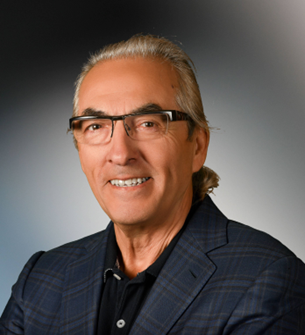

Mike Gouldhawke is an âpihtawikosisân (Métis-Cree) writer whose family is from kistapinânihk (Prince Albert) and nêwo-nâkîwin (Mont Nebo) in Treaty 6 territory in Saskatchewan. He is based out of Sḵwx̱wú7mesh, Səl̓ílwətaʔ and xʷməθkʷəy̓əm territories (Vancouver, British Columbia) and has been part of Indigenous and other social movements in the city.
Mike Sutherland is from Peguis First Nation. Married to Sharon for 40 years, with one son and daughter, and three grandchildren. Mike has spent 49 years on his grandfather’s trapline and grew up in the bush and on the water, hunting, fishing, and trapping since a child. The knowledge that has been handed down to Mike has helped in his work and helped move his community forward in a good way.
Miks is the Director of The Peguis Consultation & Special Projects Unit with eight departments: Sec 35 Consultation & Accommodation – Canada Constitution 1982; Environmental Impact Assessments & Environmental Assessments; Traditional Environmental Monitoring & Training; Land Based Education; Forestry Program; Archeological & Heritage Resource Department; Mapping & GIS; and Community Development.
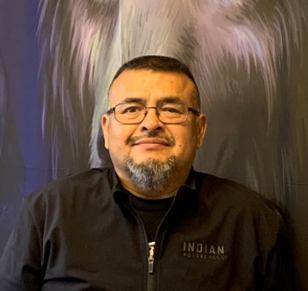

Atikamekw Nehirowiskwew from Manawan, Jennifer Petiquay-Dufresne is the mother of two beautiful boys. She holds a Bachelor’s Degree in Nursing and is finalizing a Master’s degree in Public Management in an Indigenous context.
Jennifer spent her childhood in Manawan, which led her to want to improve the living conditions of her Nation’s members. After working for nearly 15 years in the public health and social services network, she is now Executive Director of the Joyce’s Principle Office. She is also involved with her community’s Atikamekw Women’s Council in collectively improving their life conditions. She is determined to improve the accessibility to health care for Indigenous peoples.
Over the past five years, she has contributed to initiatives related to cultural safety in health care, including her professional association. Jennifer is involved in Indigenous research projects and working groups. She is a member of Groupe de concertation sur l’amélioration des soins aux Premières Nations et Inuit in her Professional Order’s (member since 2009).
Ms. Petiquay is committed to the preservation of the Atikamekw Nehiromowin language and the intergenerational transmission of ancestral knowledge. She firmly believes that the expression and practice of traditional arts contribute to the improvement of First Nations well-being.
Dianne Lafond is a Cree woman, born and raised on the Muskeg Lake Cree Nation. Her father served their Nation as Chief for many years, her mom raised 11 children. Dianne has three children.
Her education is in business and health. Working for more than 35 years as a strong advocate for Treaty protection, she acknowledges her mentors, the late Shirley Bighead and Darlene Arnault.
She worked for First Nations as Health Director, NIHB Navigator, and Director of Operations. She served on a wide range of committees. Her passion has always been in the field of health and Treaty protection, more specifically Our Medicine Chest.
Nominated for an honourary doctorate in humanitarianism for the work she has done and continues to do for First Nations health, Dianne will receive the doctorate in in Lake Arrowhead, California next month.
Ms. Lafond works as the First Nations Health Ombudsperson for Saskatchewan First Nations. She recognizes all the partners, especially the Chiefs and FSIN in the creation of this important office, which opened on July 1, 2023. This office is the direct result of complaints/concerns with racism, mistreatment, negligence in the health care system in Saskatchewan.

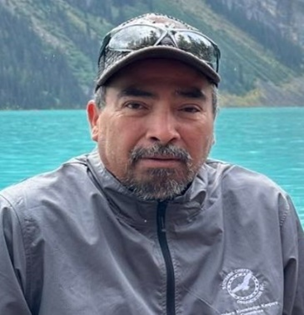
Grandfather Doug Hanska (Oktay taghika – hard to kill) is from Birdtail Dakota Nation in Manitoba. Doug is a grandfather to 40+ grandchildren and 2 great-grandchildren, working as the Jordan’s Principle Land Base Coordinator within his community. Doug has worked in numerous areas with youth, prevention, recreation, and child family services. His passion for culture and language has paved a pathway to share his knowledge through cultural workshops. Throughout his career and learning, his teaching stemmed from various Knowledge Keepers across Turtle Island, which eventually influenced him to keep sharing the stories and keep teaching our next generations.
Grandmother Mary Maytwayashing (Zoongi Gabawi Ozawa Kinew Ikwe, Strong Standing Golden Eagle Woman) is from the Lake Manitoba First Nation aka, Animozibeeng, Dog Creek. Mary is an Anishinaabe grandmother who leads traditional ceremonies. Her western educational background is social work. Mary’s professional career has been in the areas of addictions/substance abuse, corrections, child welfare, and education. Mary’s greatest learning has come from the Traditional Knowledge and Wisdom Holders with whom she has the privilege of working with.
Mary has had the fortune of working with people from all walks of life. Mary’s passion continues to be in assisting and educating people about the original and ancient ways of the first people to these lands. Mary has facilitated alongside grandmothers and Elders teaching young girls and women on the grandmothers teachings “Coming of Age” Rites of Passage teachings. Mary’s inspiration comes from experiencing and seeing the smiles on people’s faces when they learn the teachings of their people.
Mary believes that we are all born and gifted with a purpose. As humans we need to find what our purpose is. This can be done through our ceremonies and teachings. Mary continues to live her purpose by honouring and facilitating the teachings and sharing with the people.
Mary received the Nibi Water Song that she sang at the 2017 Canada Games through a dream. Her song can be viewed at the Turtle Lodge YouTube channel.

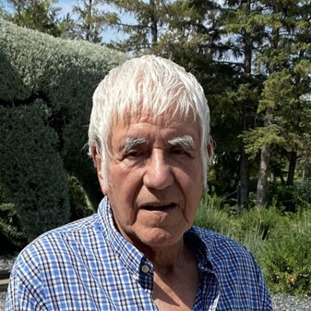
Grandfather Bill Ballantyne, a retired teacher, was born in December 1942. From 1975 to 2011, Bill taught elementary school, including native studies, special education, and music. He also was a school counsellor. Bill, as a young child in northern Saskatchewan, learned to live off the land, by trapping and fishing throughout the year and picking herbs and traditional medicines. His parents shared stories about Weesa kee jack and other stories of life lessons. Bill has published some of those stories for children to enjoy. Bill continues to pass on traditional teachings to First Nation people of all ages. His hobbies include music, storytelling, and writing.
Tréchelle Bunn hails from Wampum, Manitoba, and is a proud member of Chan Kagha Otina Dakhóta Oyáte (Birdtail Sioux Dakota Nation). She holds a Bachelor of Arts degree in Criminology with a minor in Indigenous Studies from the University of Manitoba. She is pursuing her dream of becoming a lawyer at Robson Hall, the University of Manitoba – Faculty of Law.
During her undergraduate years, Tréchelle showcased her versatility as a student-athlete, playing hockey for the Bison Women’s hockey team.
Tréchelle is also a passionate advocate, and in 2022, she founded the Reconciliation Run, Canada’s first National Day for Truth and Reconciliation half-marathon. Beyond her academic and athletic pursuits, she serves as the Youth Chief of the Southern Chiefs’ Organization, representing the voice of youth across 34 First Nations in southern Manitoba.
Tréchelle is an accomplished athlete, academic, and advocate. She is arguably one of Manitoba’s most decorated First Nation youth.

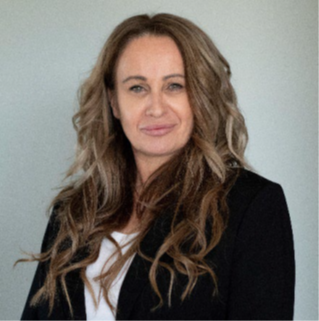
Sue-Anne Hunter is a proud Wurundjeri and Ngu rai Illum Wurrung woman and the Deputy Chair and Commissioner of Australia’s first truth telling process – the Yoorrook Justice Commission. She is an Adjunct Professor of Global Engagement at Federation University and a member of the National Centre for Reconciliation, Truth, and Justice Advisory Board.
A child and family services practitioner by trade, Sue-Anne has over 20 years of clinical experience responding to developmental, transgenerational, and community trauma.
She is widely recognized for developing rights-based, transformative practice responses that empower Aboriginal people to heal from the continuing effects and processes of colonization.
Sue-Anne has extensive experience in the governance and the leadership of Aboriginal community-controlled organizations, and her expertise is regularly sought for government inquiries, parliamentary and ministerial advisory committees, academic research projects, and media interviews.
Nathalie Lachance is the Director, Engagement for the Indigenous Health Legislation, Strategic Policy, Planning and Information Directorate, First Nations and Inuit Health Branch. Prior to this role, Nathalie has been working at First Nations and Inuit Health Branch – Alberta Region since 2003.
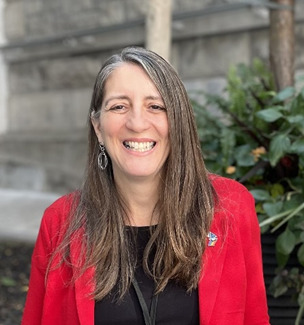
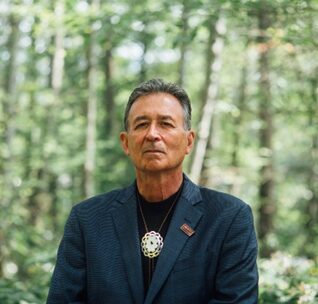
Richard Jock is a member of the Mohawks of Akwesasne and serves as the Chief Executive Officer (CEO) of the First Nations Health Authority (FNHA). The FNHA plans designs, manages, delivers and funds the delivery of health programs to over 200 diverse First Nation communities and citizens across British Columbia.
As CEO, Richard is a committed leader in building meaningful partnerships with First Nations communities and health system partners to ensure an exceptional First Nations health governance structure in British Columbia. Richard believes in a transformational leadership approach with a focus on systems change, sustainability, diversity, inclusion, and advancing e-health and virtual health services.
Richard brings lived experience and professional skills as a strong First Nations advocate in health and wellness settings and government relations. Over the past 25 years, Richard has held various positions in the health field for First Nations organizations and the federal government. Prior to joining the FNHA, Richard served as the CEO for the Assembly of First Nations and held senior leadership roles with Health Canada, the National Aboriginal Health Organization, and the Mohawk Council of Akwesasne.
Richard leads by example through a personal commitment to his own health and wellness. He challenges himself daily to remain active through morning walks, beating his previous step-count, reading inspiring books, and playing golf in his spare time. Richard played and coached Lacrosse for many years and remains an avid fan. Lacrosse occupies a special significance for its values, traditions and competitive spirit.
Dr. Josée G. Lavoie is a French Canadian scholar who, for the past 30 years, has been working in partnership with Indigenous communities and organizations to improve Indigenous peoples’ access to responsive health services. She is a professor in Community Health Sciences at the Max Rady College of Medicine, University of Manitoba, and Fulbright scholar. She was the Director of Ongomiizwin Research at the Indigenous Institute of Health and Healing (2014 to 2024). She is actively engaged in collaborations in Australia and New Zealand, and in circumpolar countries.
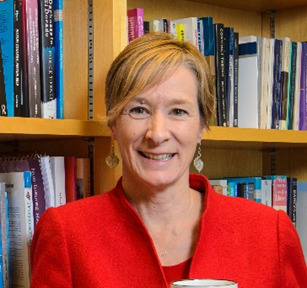
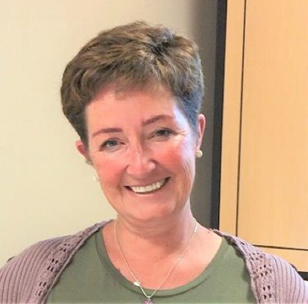
Gail Boehme is a dedicated healthcare professional with a passion for improving the well-being of underserved communities. As the Chief Executive Officer of All Nations’ Healing Hospital, and File Hills Qu’Appelle Tribal Council’s Health Services Department, Gail has played a pivotal role in the organization’s commitment to providing high-quality, culturally sensitive healthcare.
With a background in healthcare administration and a deep understanding of the unique challenges faced by Indigenous communities, Gail has been a driving force behind the hospital’s mission to promote health, healing, and wellness for all its patients. Her leadership and vision have led to the implementation of innovative healthcare programs, increased access to essential medical services, and the fostering of a caring and inclusive environment.
Gail’s commitment to improving healthcare outcomes extends beyond the hospital walls. She actively collaborates with local leaders, community organizations, and government agencies to address health disparities and implement holistic solutions. Her dedication to promoting health equity and culturally relevant care has made her a respected figure in the field of healthcare.
ANHH & FHQTC is working on the full implementation of a Culturally Responsive Primary Care Clinic, offering point of care access to Traditional Healing and/or western medical treatment.
With a strong educational background in healthcare management and a compassionate approach to patient care, Gail exemplifies the values of integrity, empathy, and dedication that are at the heart of All Nations’ Healing Hospital’s mission.
Tara Myran is from the Long Plain First Nation and Swan Lake First Nation. She identifies with both First Nations because her father was Ojibway from Long Plain and her mother carries Dakota from Swan Lake. She is a PhD student at University of Manitoba in the Community Health Sciences Graduate Program and completed a Master’s in Development Practice with research focusing on Indigenous Mental Health. Tara is a Senior Project Manager for the Addressing Racism in Health Care project at the Southern Chiefs’ Organization.
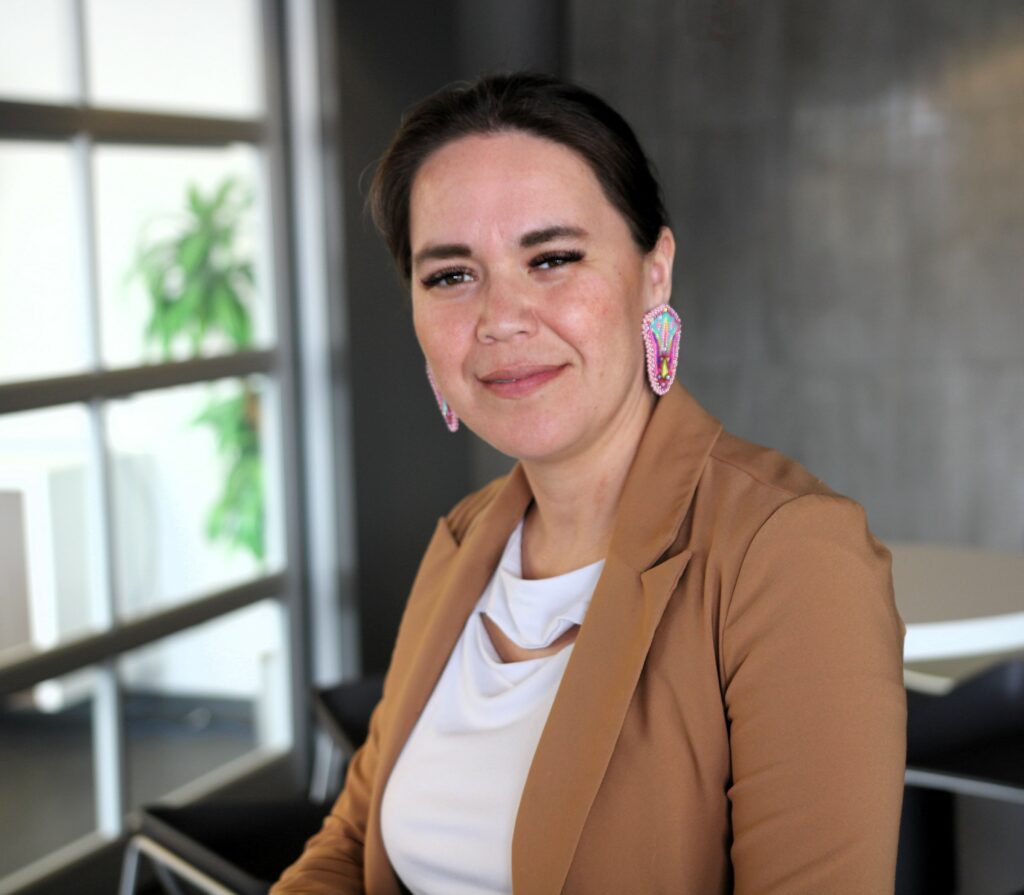

Dr. Jan Stewart is Dean of Education and a tenured Professor in the Department of Educational Administration, Foundations, and Psychology at the University of Manitoba. She has held numerous administrative and leadership positions including, Interim Provost, Vice-President Academic, Deputy Provost, Acting Dean of Education, Acting Dean of Kinesiology and Applied Health, Executive Director of the Global College, and Coordinator of Advanced Studies in Education at the University of Winnipeg. Jan holds a PhD in Educational Administration from the University of Manitoba. She has worked in the field of education in Manitoba for over 30 years, including being a teacher and counsellor in the kindergarten to grade 12 public school system, a contract curriculum writer and consultant for the Province of Manitoba, and an educator for pre-service teachers and school counsellors.
Joshua Gandier is 25 years old and a member of Peguis First Nation. Joshua was born and raised in Winnipeg. During his upbringing, he participated in many sports, with basketball becoming his main focus. Joshua’s competitive experience includes playing for Manitoba provincial teams, for the University of Winnipeg’s (U of W) Wesmen men’s basketball team, and for Manitoba at the 2017 North American Indigenous Games (NAIG). Joshua has also demonstrated his commitment to community by coaching basketball to Indigenous youth throughout the province. In summer 2023, he had the opportunity to head coach the 16U Manitoba Boys at the NAIG in Halifax, Nova Scotia. During his time at the U of W, Joshua earned his Bachelor of Business Administration degree with a major in Accounting. He will use his education as a lead on the Youth Council’s Finance Committee. Joshua is continuing his studies at the University of Manitoba’s Faculty of Law. With a background in business and law, Joshua is eager to start a career related to First Nation tax, estates, business, and Aboriginal Law. His experiences in sport have created numerous opportunities outside of sport, most importantly, the opportunity to earn an education. That is why he is focused on creating athletic opportunities for the future generations. As a Youth Chief, Joshua will advocate for sport opportunities for youth from SCO Nations so they can have access to opportunities that will support them towards their journey in earning an education.
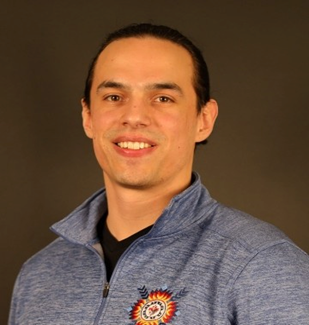
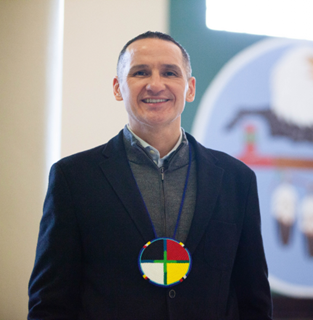
Kevin Chief is Principal of Chief Partnerships Manitoba Incorporated and is the Community Ambassador for the Southern Chiefs’ Organization, chairperson for the Centre of Aboriginal Human Resource Development Inc., and Senior Advisor at True North Sports and Entertainment. Kevin brings a commitment to community and leadership development through his dedication to education, training, and employment.
Born and raised in Winnipeg’s North End, he has considerable public sector and community experience. He served as a member of the Legislative Assembly of Manitoba, representing Point Douglas, and was appointed to Cabinet as Minister of Children and Youth Opportunities in 2012, Minister responsible for the City of Winnipeg in 2013, and Minister of Jobs and the Economy in 2014. Following public service, Kevin was the Vice President at the Business Council of Manitoba. Chief is the co-founder of the Winnipeg Aboriginal Sport Achievement Centre.
Kevin and his wife Melanie have three young sons: Hayden, Kellan, and Daxton. He is a member of Minegoziibe Anishinabe First Nation (Pine Creek) and also known as a high steppin’ square dancer as a part of the Norman Chief Memorial Dancers.
Carol McCorrister, also known as Ozawa Giniw Ikwe/Yellow Eagle Women, is from the Peguis First Nation. She has worked with SCO since October 2022. She is the Director of Mental Health and Wellness.
Having worked in both social and health services sectors for more than 35 years, Carol holds a Bachelor of Social Work degree from the University of Manitoba and has experience working in addiction, coordinated crisis response, and program development and management. Carol has worked for southern First Nations community agencies, with Northwest Inter-Nation Family and Community Services in British Columbia, and the Southeast Resource Development Council.
She also served as a Co-Chair on the Manitoba First Nations Wellness Advisory Community. Since 2022, she has been part of the First Peoples Wellness Circle, where she holds the role of Treasurer. She is also a committee member with the City of Winnipeg Community Emergency Advisory Committee and is a co-chair for the provincial Homelessness Project.
Throughout her career, she has gained a wealth of experience and skills that benefits effective services delivery, a collaborative practice, and strong partnership with southern communities, federal and provincial governments, agencies, and programs to ensure that SCO First Nations receive culturally appropriate and sensitive, trauma-informed practice services.

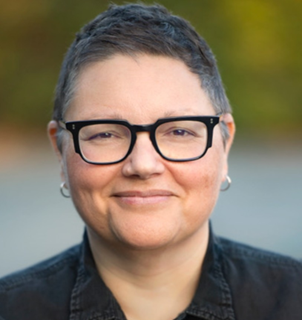
Suzanne Methot is the author of the new young adult book called “Killing the Wittigo: Indigenous Culture-Based Approaches to Waking Up, Taking Action, and Doing the Work of Healing” and the award-winning non-fiction book “Legacy: Trauma, Story, and Indigenous Healing.” She is also the co-author of the textbook “Aboriginal Beliefs, Values and Aspirations” and a contributor to Scholastic Canada’s Take Action series of classroom resource books.
Suzanne has worked as a classroom teacher, museum educator, and in advocacy and direct-service positions at Indigenous-led organizations including the YWCA Elm Centre (Winona’s Place), the Native Women’s Resource Centre of Toronto, and the Anishinabek Nation (Health and Environment Program). She was also an executive member of the board of directors at the Parkdale Queen West Community Health Centre in Toronto, which operated the Shout Clinic for homeless and street-involved youth, youth marginalized as a result of mental health concerns, and those involved with the criminal justice system.
Born in Vancouver in 1968 and raised in Sagitawa (Peace River, Alberta), Suzanne is Asiniwachi Nehiyaw (Rocky Mountain Cree) of mixed Indigenous and European heritage. She lived for 29 years in Wendat-Haudenosaunee-Anishinabeg territory in Toronto but now lives on the unceded territory of the Snuneymuxw Nation near Nanaimo, BC. Her next book, “Clean Water,” is part of a new graphic history series forthcoming from Scholastic Canada in 2024. She’s also working on an Indigenous atlas of Canada for Kids Can Press, which will be published in 2027. For more info, check her website at https://www.suzannemethot.ca/.
Tammy Genaille, Inaabe Giniw Ikwe – Looking Eagle Woman, was born and raised in Brandon Mb to Ron & Joyce Thomas, with her father’s family lineage from the Metis settlement of Grand Marais Mb and Peguis First Nation Mb. She is a heart lead, determined, proud Metis woman, who loves sharing space with others, lifelong learning and education, and inspiring one’s growth and connection. She is a mother of 6 adult children, grandmother of 7 grandchildren, a daughter, sister, wife, auntie & friend to many. Becoming a mother at the age of 15, her pursuit and determination in schooling lead her to obtaining her Bachelor of Social Work Degree through the University of Regina and ultimately the completion of her Master of Social Work Degree with a Clinical Specialization in Trauma-Informed Practice through the University of Calgary, along with various trainings and certifications.
With almost 30 years of professional experience, she has had various opportunities as being an active board member and/or participant locally, provincially and nationally in causes that have been very dear to her for personal reasons and life experiences. Her career path has been enriched from frontline work to executive management, grassroots to government, not for profit to sole proprietor entrepreneurship, post secondary college instructional with application of Indigenization strategies, and now a private therapeutic practice enhanced with community education and consultation.
With the personal impacts and deeper learnings of intergenerational trauma, interpersonal traumas, and addictions within her personal and family life, this has been a guiding force in the directions she has taken. Having a deeply engrained passion in social justice, advocacy, empowerment and walking with others, she is a lifelong learner and firm believer that it all begins with Connection and that our brokenness summons light into the deepest crevices of our heart and soul. She strives to bring this into her ways of knowing, being and doing and ultimately into the frameworks of her private practice in the areas of mental health support, trauma and shame.
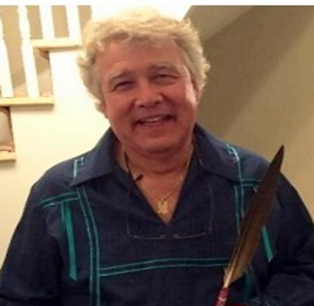
Ed Connors is of Mohawk (from Kahnawake Mohawk Territory) and Irish ancestry. He is a psychologist who has worked with First Nations across Canada since 1982 in both urban and rural centres. His work over this time has included Clinical Director for an Infant Mental Health Centre in the city of Regina and Director for the Sacred Circle, a Suicide Prevention Program developed to serve First Nations in Northwestern Ontario.
Dr. Connors’ most recent work has involved development of Indigenous life promotion projects, including Feather Carriers Leadership for Life Promotion. While developing these services, Dr. Connors worked with Elders and apprenticed in traditional First Nations approaches to healing.
Today his practice incorporates traditional knowledge about healing while also employing his training as a psychologist. His work has also included consultation and community training to assist First Nations in the development of restorative justice programs, Indigenous life promotion, and peacemaking/reconciliation.
Lisa Wexler is a Professor at the University of Michigan who has worked in partnership with Alaska Native communities for decades, focused on promoting mental wellness and preventing suicide. Current projects include the Family Safety Net to increase safety and reduce quick access to lethal means in homes where someone is worried; a research-informed, community-led approach to suicide prevention called PC CARES: Promoting Community Conversations About Research to End Suicide, and the Alaska Native Community Resilience Study, which focuses on community strengths to prevent youth suicide (co-PI with Drs. Rasmus and Allen).
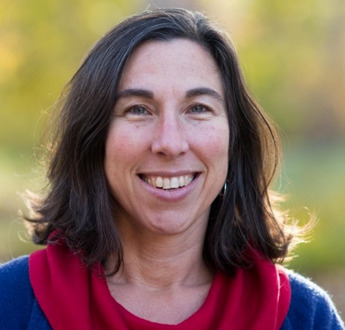
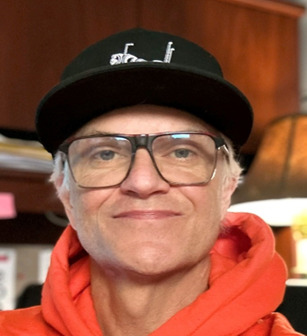
Trevor (Hurst) Hayhurst is the founding member, songwriter, and lead singer for the Juno-nominated, platinum selling rock band Econoline Crush. Trevor grew up in southwest Manitoba and graduated high school in Virden, Manitoba. Trevor attended Brandon University, where he graduated with a Bachelor of Science in Psychiatric Nursing in 2016. He has spent his entire health care career working in First Nations. Up until March 2024, Trevor was the Mental Wellness Worker, Home and Community Care Nurse/ Manager, and Harm Reduction Worker in Canupawakpa Dakota Nation. Trevor has recently joined the Sioux Valley Health Centre as part of their Wellness Team.
Albert McLeod is a Status Indian with ancestry from Nisichawayasihk Cree Nation and the Metis communities of Cross Lake and Norway House in northern Manitoba. He has over 30 years of experience as a human rights activist and was one of the founders of the 2-Spirited People of Manitoba.
Albert began his 2Spirit advocacy in Winnipeg in 1986 and became an HIV/AIDS activist in 1987. He was the director of the Manitoba Aboriginal AIDS Task Force from 1991 to 2001. In 2018, Albert received an Honorary Doctorate of Laws from the University of Winnipeg. He was also a member of the sub-working group that produced the MMIWG – 2SLGBTQQIA+ National Action Plan Report in 2020-2021.
In 2020, Albert joined Team Thunderhead, the team that recently won the international competition to design the 2SLGBTQI+ National Monument in Ottawa.
Albert lives in Winnipeg, where he works as a consultant specializing in Indigenous peoples, 2Spirit history and identity, cultural reclamation, and cross-cultural training.
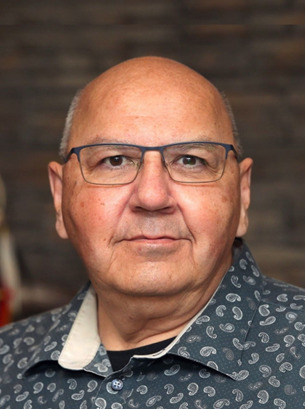
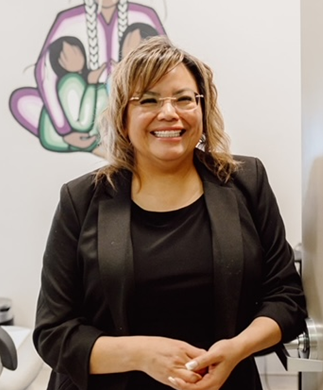
My name is Gwen Traverse, I am from Pinaymootang First Nation in Manitoba’s Interlake in Treaty 2 Territory. I am currently employed in my home community as Director of Health which is an accredited health facility whom recently received Exemplary Standing through Accreditation Canada. I have worked in various First Nation Organizations mainly in the field of health. I am passionate on the health and well-being of our Indigenous people and consider myself a strong advocate for our region. I enjoy bringing on new challenges, building on or enhancing partnerships in order to help facilitate change; whether it is improving access to services or assisting people throughout their health journey.
One of my personal accomplishments is becoming a certified Health Manager, diploma in Project Management, certification in Human Resources and working on completing my Social Work degree. I have largely been involved in the bridging of care amongst our community with the local regional health authority by bringing an Indigenous voice to the table with their Indigenous Health Advisory Committee, being part of the first Indigenous My Health Team in region to help enhance community services in physician care, mental health, chronic disease and working on to initiate local physiotherapy in our community. Partnership is always a huge component in helping lead our organization, with an intent to ensure that First Nation patients rights for safe and adequate health care needs are met for members of Pinaymootang.
Evelyn Pratt was born in Brandon, Manitoba, to Walter and Doris Pratt, the fifth of six children. With a very humble and impoverished beginning and upbringing with her parents and grandparents, they always impressed on her the importance of education and maintaining the Dakota culture and language. She continues to follow this important guidance.
Evelyn is a proud Dakota woman from the Sioux Valley Dakota Nation (Wipazoka Wakpa). She is a mother of three and grandmother of six. She has over 30 years of experience in the fields of First Nation governance. She has worked in human resources for Dakota Ojibway Child and Family Services and has worked for the Sioux Valley Dakota Nation.
She was an elected school board member and has worked to support the translation and transmission of the Dakota language. She promotes education, language revitalization, and maintenance. Evelyn has always been involved with Dakota language preservation activities.
As Health Director for the Birdtail Sioux First Nation, Evelyn leads the organization’s efforts to improve healthcare quality and safety. She also works with others to supervise and manage all day-to-day health programs and services.
The importance of education was always stressed by her mother Doris Pratt, who was always her greatest teacher and inspiration. Evelyn graduated from Brandon University with a Bachelor of Science degree with a Major in Psychology and a Minor in Business Administration. She has obtained many certificates and continues to enhance her knowledge by enrolling in new training initiatives.
In 2022, Evelyn played an instrumental role as an elected Band Councillor of the Sioux Valley Dakota Nation Chief and Council.
Evelyn is passionate in advocating for First Nation people’s rights.
Her personal interests have included supporting her children in their sporting activities. She believes in the importance of participation in physical activities to maintain healthy lifestyles. Evelyn loves to travel, attending cultural events, concerts, etc. She also does beading, when time permits.
Evelyn feels her greatest accomplishment is overcoming barriers and maintaining her identity as a Dakota woman, culturally grounded in the values instilled by my parents/grandparents and maintaining the Dakota language. The most important aspect of who she is, is being spiritually grounded.
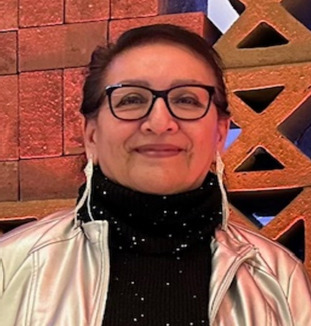
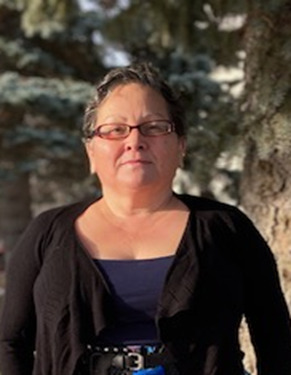
Teresa Mekish is a member of Minegoziibe Anishinabe (Pine Creek First Nation) since 1971.
She started her career in her home community working with the education department and later moved to Winnipeg to work with the Assembly of Manitoba Chiefs from 1992 to 1994. In 1994, she joined the federal public service where she spent most of her career in First Nations health and retired after 23 years.
Teresa is the Director of Health for Swan Lake First Nation since 2021. Prior to that, she was Director of Health for her home community of Minegoziibe Anishinabe from 2017 to 2021.
Teresa received her designation in First Nations Health Management in 2019 and continues to participate in professional development training to keep up her certification.
A strong advocate for First Nations people, whether it be in health or social services, Teresa makes it a point to be the voice when others cannot, many times regarding strict policies of Non-Insured Health Benefits and other programs and services that hinder the wellbeing of our people and communities.
Virginia Lukianchuk is a proud member of the Sandy Bay Ojibway Nation. She grew up in the adjacent town of Amaranth and spent countless days at her grandparents home on reserve. Her maternal grandparents, John and Agnes Beaulieu, were blessed with 14 children and 60 grandchildren.
Growing up closely with her Beaulieu family has provided her with deep seeded roots in the Ojibwe tradition, beliefs, and values. It is these values that motivate her to work in the health care field for her Nation.
Working in the health field since 1999 exposed Virginia to many gaps in the health care system, particularly the gaps experienced by First Nations people trying to access health care services. Virginia has become a strong advocate in healthcare for her Nation.
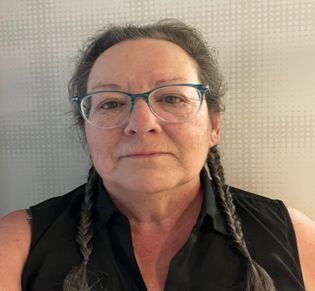
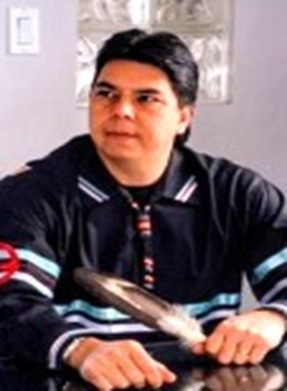
Craig Abotossaway is Anishinabe from Aundeck Omni Kaning First Nation on Manitoulin Island. Craig has extensive experience working in the First Nations health and political sectors and carries a Master of Social Work degree, in which he specialized in Indigenous health practices and approaches to wellness.
Craig is the Executive Director of Mnaamodzawin Health Services, a federally funded tribal health office servicing the member First Nations on Manitoulin Island. Mnaamodzawin is a multidisciplinary service provider of homecare services, mental health, and various prevention services. Indigenous practices are heavily embedded into the service delivery model.
As a former Chief of his community, Craig brings a strong understanding of community and individual needs of First Nations people. Additionally, as a bundle carrier for the Anishinabek Nation, Craig has been honoured as a pipe carrier, as a traditional drum carrier with the historical songs and teachings of the Thunderbird Drum, conductor of various ceremonies for the Nation, and Knowledge Keeper of the traditional protocols involved with the Anishinabe Miikun. Craig brings a deep understanding and appreciation of the value and role of culture and ancient historical practices of Indigenous people in his approaches to health care and advancing reconciliation and meaningful Indigenous Inclusion.
Craig is a competent public speaker, with excellent oral, written, communication, and facilitation skills in a wide variety of topic areas related to health and cultural revitalization.

